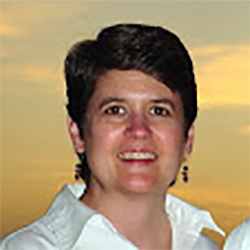New From Health Blogger, Suzan Jackson:
OMF Is Taking an Active Role in NIH Events!
 Several private nonprofit research organizations, including Open Medicine Foundation (OMF), have made amazing strides in recent years. However, The National Institutes of Health (NIH) is still at the center of medical research and research funding for the U.S. (and the world).
Several private nonprofit research organizations, including Open Medicine Foundation (OMF), have made amazing strides in recent years. However, The National Institutes of Health (NIH) is still at the center of medical research and research funding for the U.S. (and the world).
As an ME/CFS patient of 21 years, I know from first-hand experience that the best way to change NIH’s approach to ME/CFS is to get involved and become an integral part of their efforts. We patients have worked hard at that goal for a long time. Many of us, including me, attended NIH CFS Advisory Committee (CFSAC) meetings years ago, including one where our local parents’ group, all went together to testify about pediatric ME/CFS. Now, OMF, with its vast resources of ME/CFS clinicians and researchers, is taking that same kind of active approach to help guide NIH in its research efforts for ME/CFS and Long COVID.
OMF has several goals in its interactions with NIH:
- To break down any stigmas or misconceptions about the disease by being present at NIH events and presenting accurate information.
- To move their research agenda forward.
- To continue growing its network of collaborators.
- Ultimately, to help break down the ME/CFS research silos and encourage more teamwork and data sharing.
That last point is important because traditionally, the NIH (and the entire medical community) has divided the body into separate systems. Any ME/CFS patient can tell you that our disease is extremely complex and affects all parts of the body. We all know the frustration of seeing a specialist who only focuses on one aspect of the disease when we have problems with all of the different bodily systems. It’s important for ME/CFS researchers to look at the body as a whole, which requires cooperation and collaboration.
To reach those goals, OMF is actively involved with several NIH events. Many OMF funded researchers and Scientific Advisory Board members are presenting at the NIH-sponsored ME/CFS Research Roadmap Webinar Series. According to NIH, the goal of these public webinars is to identify research priorities to move the ME/CFS research field toward translational studies (applicable to real-world issues and helpful for patients) and clinical trials by assessing current efforts and identifying opportunities for further research.
This series began in August with a webinar on the nervous system (yes, they are still dividing the disease into bodily systems, but at least they are talking about all of the systems now). Two OMF funded researchers spoke at this webinar:
- Jonas Bergquist, MD, PhD, OMF’s Chief Medical Officer, spoke about Cerebrospinal Fluid Studies being conducted at OMF’s Collaborative Research Center at Uppsala, Sweden.
- Janet Mullington, PhD, OMF-funded Harvard Collaboration, presented a current OMF funded study to characterize non-refreshing sleep and point the way to effective treatments.
In October, NIH held its webinar on the immune system, and Scientific Advisory Board member Maureen Hanson, PhD, Cornell, spoke about Immune Cell-type Approaches to Identify Mechanisms of ME/CFS. The webinar on metabolism was also held in October, with Alain Moreau, PhD, Director of the OMF funded Montreal Collaboration, moderating the webinar. There were presentations from two other OMF-funded researchers and Directors of OMF-funded Collaborative Research Centers:
- Wenzhong Xiao, PhD, OMF funded Harvard Collaboration, spoke about Studying Metabolomics in ME/CFS—A Computational Perspective
- Christopher Armstrong, PhD, OMF funded Melbourne Collaboration, Australia, presented on Metabolic Characterization of Biofluids in ME/CFS
Another NIH webinar was held on November 1 on genomics/genetic susceptibilities. Two OMF-funded researchers and Directors of OMF-funded Collaborative Research Centers—Alain Moreau, PhD and David Systrom, MD—were moderators for that meeting. Dr. Moreau also presented about OMF funded research on the Contribution of Epigenomics to ME/CFS Pathogenesis: Past, Present, and Future.
There are four more webinars planned on the topics of chronic infections, physiology, circulation, and less studied pathologies. OMF plans to continue participating in these webinars.
Watch recordings of the webinars here.
NIH is also hosting two key ME/CFS-focused meetings in-person this December:
- Dec. 11 – NIH ME/CFS Young and Early Investigators Conference – this one-day event encourages young investigators to get involved in the ME/CFS field.
- Dec. 12-13 – Advancing ME/CFS Research: Identifying Targets for Intervention and Learning from Long COVID; in person and virtually.
Check out the full agenda and registration information here.
Several OMF members will attend and present at these meetings, including Linda Tannenbaum, President and CEO, and key leaders from OMF’s Collaborative Research Centers. OMF will host a table so that participants can become familiar with OMF’s mission, priorities, and research efforts. OMF will also be sponsoring the lunches at the events to encourage networking and collaboration among researchers.
All of these NIH events are important because attention and proper information will lead to more collaborations, and hopefully, increased NIH funding. We want that funding to be focused on areas where research will yield the best and fastest results for patients. The hope is that it will lead to:
- Biomarkers that can be tested in commercial labs.
- Readily available treatments that patients can easily access.
- Better understanding of the root causes of the disease so that better treatments can be quickly developed.
By taking an active role in NIH events, OMF is helping to make those much-needed advancements a reality.
Follow Sue Jackson for great articles, blog posts, and more at livewithcfs.blogspot.com.
Support OMF’s pioneering approach to research and medical education. Every contribution gets us one step closer to treatments and a cure.